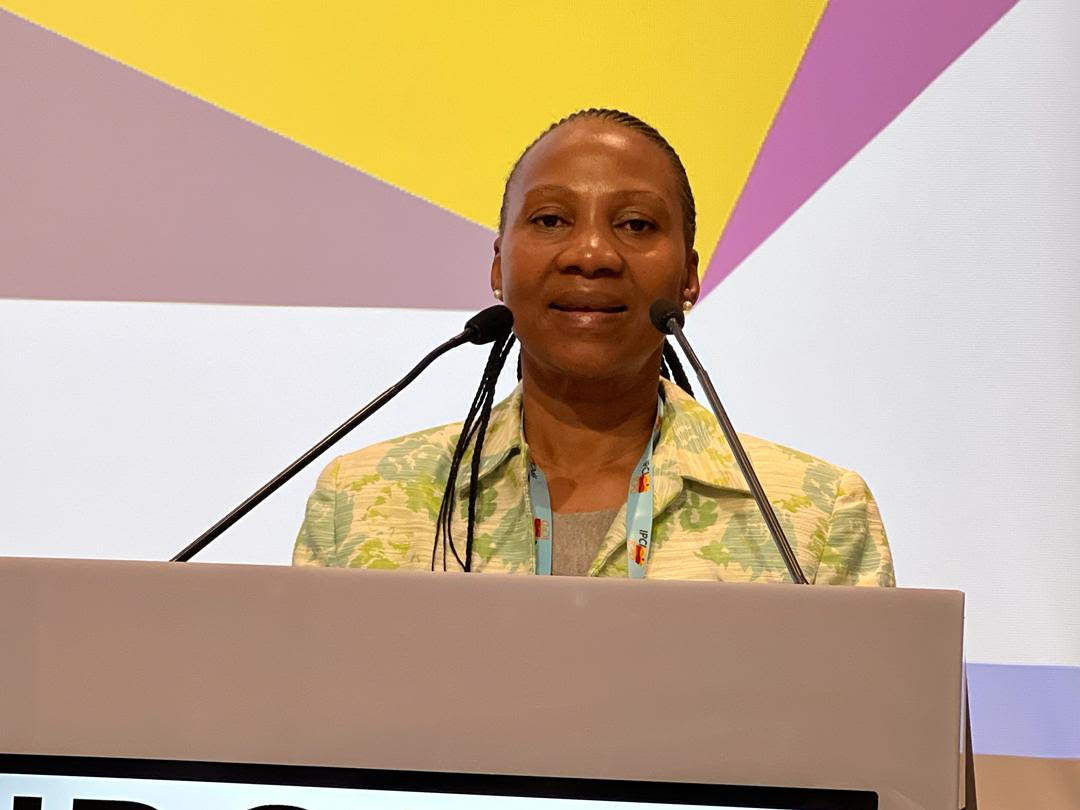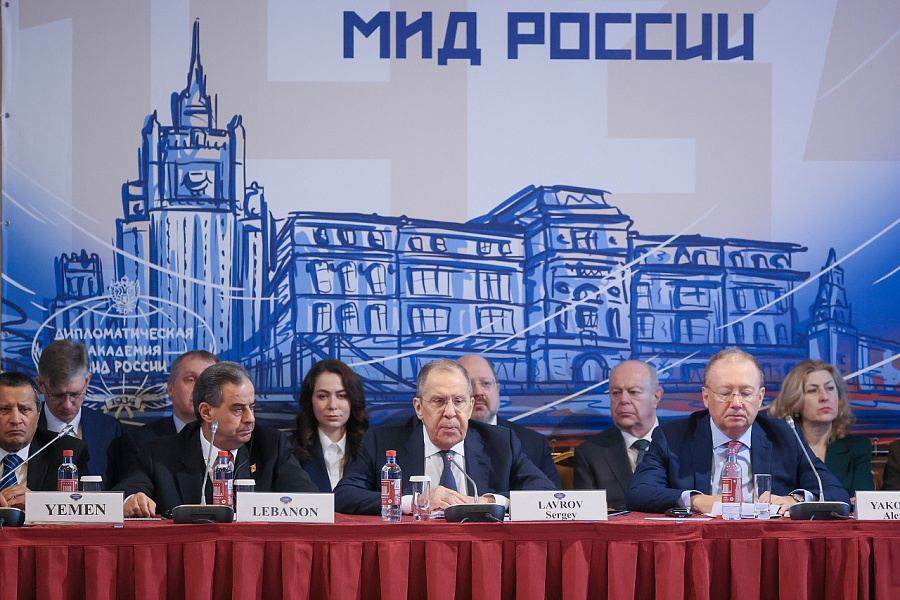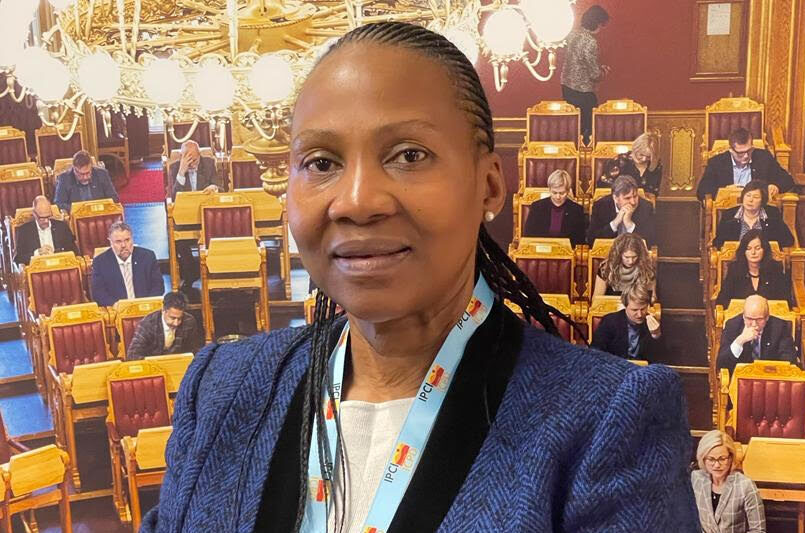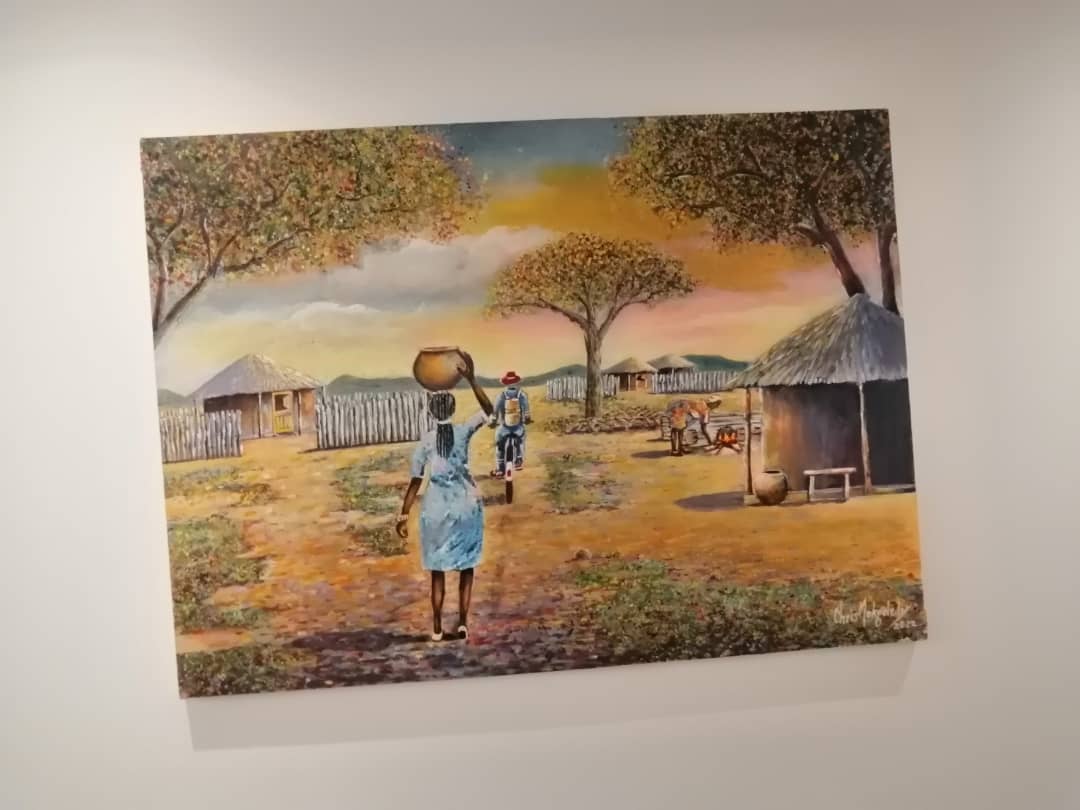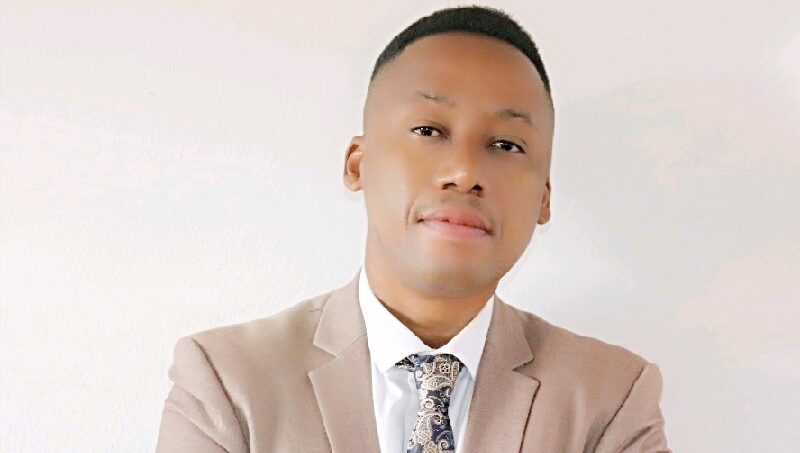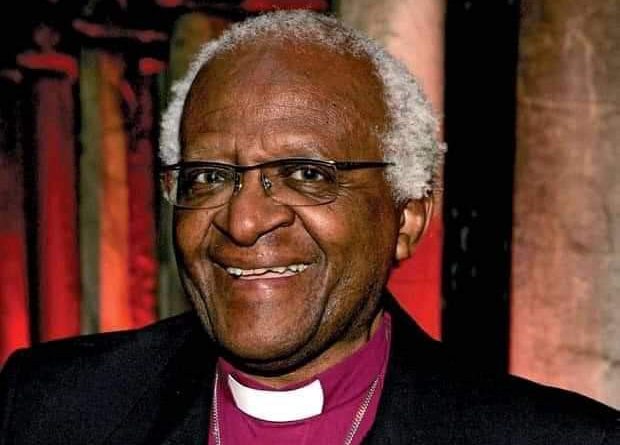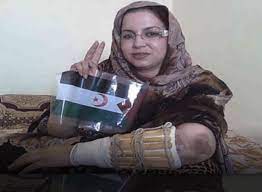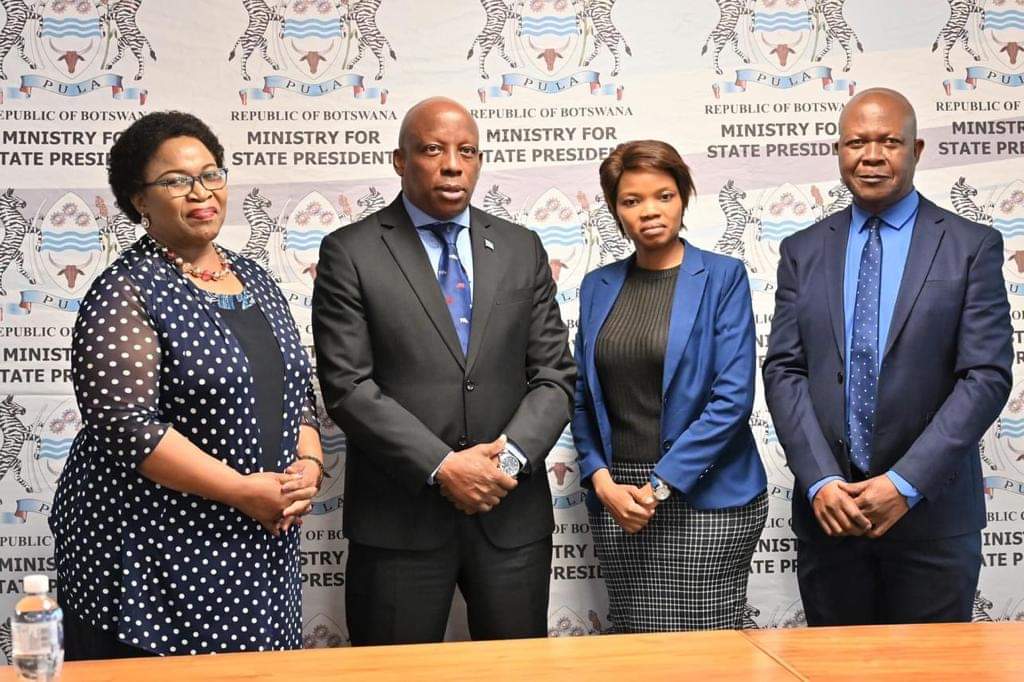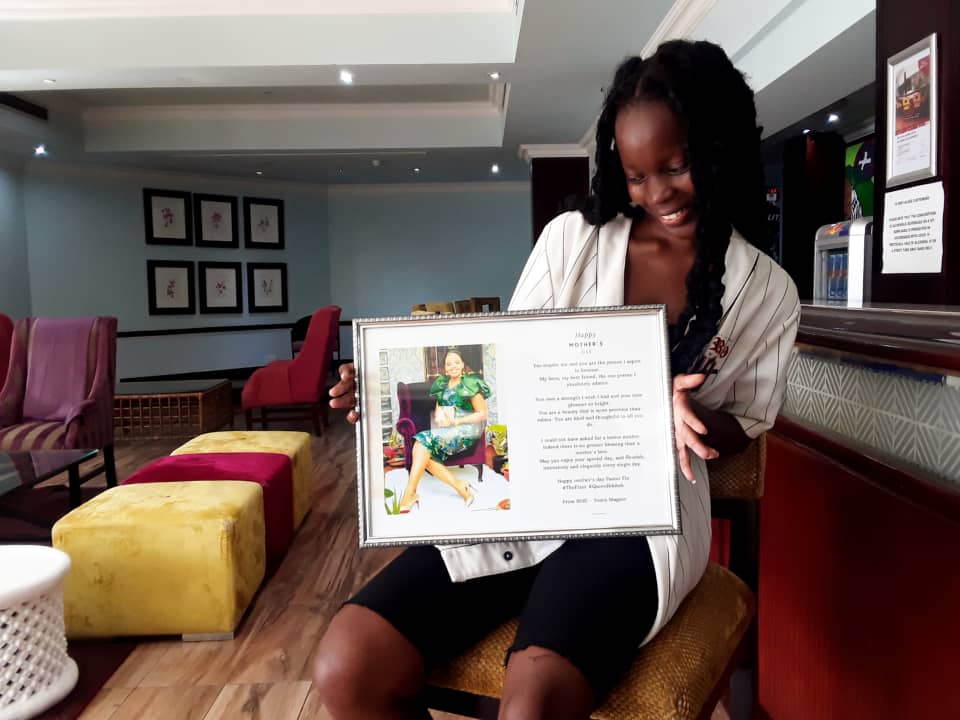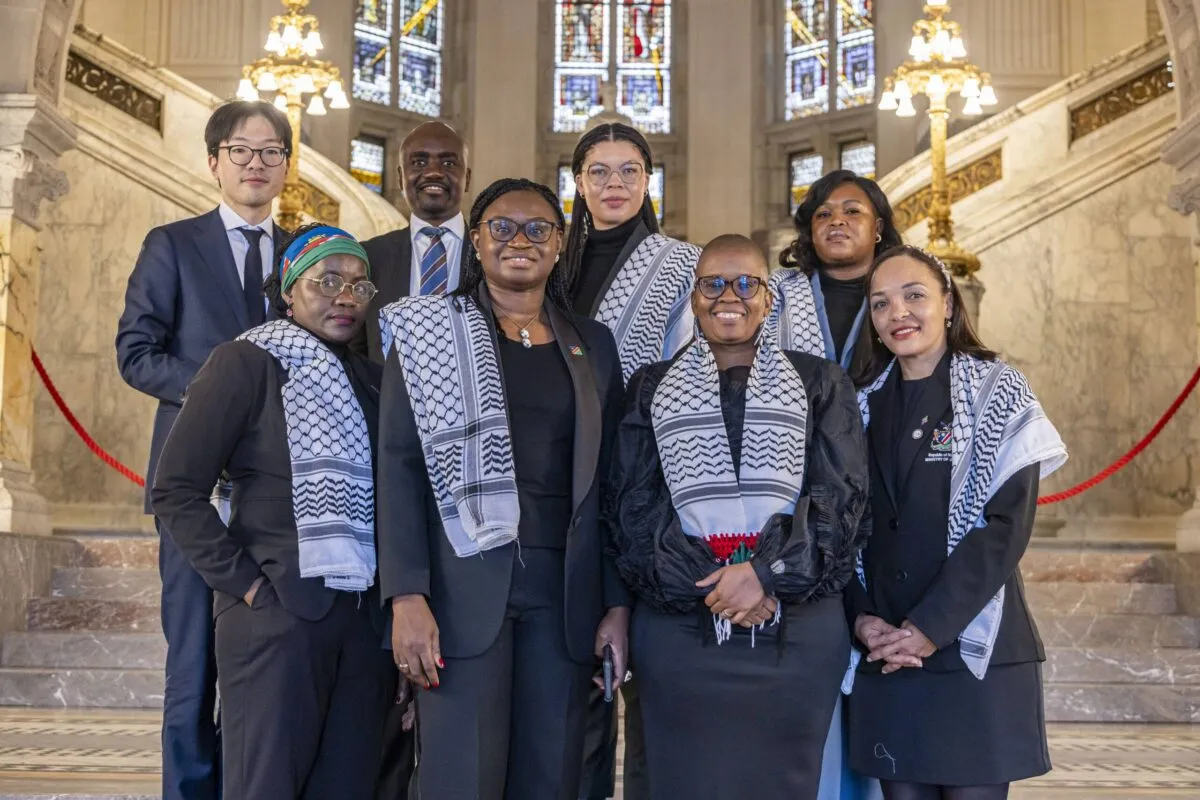
Delegation of Namibia attends the hearings on the advisory proceedings of the International Court of Justice (ICJ) on the legal consequences of Israel’s practices in the Palestinian territories in The Hague, Netherlands on 23 February, 2024 [Nikos Oikonomou/Anadolu via Getty Images]
The distance between Gaza and Namibia is measured in terms of thousands of kilometres, but the historical distance is much closer. This is precisely why Namibia was one of the first countries to take a strong stance against the Israeli genocide in Gaza.
Namibia was colonised by the Germans in 1884, while the British colonised Palestine in the 1920s, handing the territory over to the Zionist colonisers in 1948. Although the ethno-religious fabrics of Palestine and Namibia are different, their historical experiences are similar.

It is easy to assume that the history which unites many countries in the Global South is only that of western exploitation and victimisation. However, it is also a history of collective struggle and resistance.
Namibia has been inhabited since prehistoric times. This long-rooted history has allowed Namibians, over the course of thousands of years, to establish a sense of belonging to the land and to one another, something that the Germans did not understand or appreciate. When the Germans colonised Namibia, they called it “German South West Africa” and did what all other western colonialists have done to virtually all Global South countries, from Palestine to South Africa to Algeria and beyond: they attempted to divide the people, exploited their resources and butchered those who resisted.
Although a country with a small population, the people of Namibia resisted their colonisers, resulting in the German decision to exterminate the natives; they literally killed the majority of the population.
Since the start of the Israeli genocide in Gaza, Namibia has answered the call for solidarity with the Palestinians, along with many African and South American countries, including Colombia, Nicaragua, Cuba, South Africa and Brazil, as well as China and many others.
Although intersectionality is a much-celebrated notion in western academia, no academic theory is needed for oppressed, colonised nations in the Global South to exhibit solidarity with one another. So when Namibia took a strong stance against Israel’s largest military supporter in Europe — Germany — it did so based on Namibia’s total awareness of its history. The German genocide of the Nama and Herero people (1904-1907), is known as the “first genocide of the 20th century”.
The ongoing Israeli genocide in Gaza is the first genocide of the 21st century.
The unity between Palestine and Namibia is now cemented through mutual suffering. It is not Namibia that has launched the legal case against Germany at the International Court of Justice (ICJ), though. It’s Nicaragua, a Central American country that is also thousands of miles away from both Palestine and Namibia. The Nicaraguan case accuses Germany of violating the Convention on the Prevention and Punishment of the Crime of Genocide. It sees Germany — rightly so — as a partner in the ongoing genocide of the Palestinians.
This accusation alone should terrify the German people, in fact the whole world, as Germany is connected to genocides from its early days as a colonial power. The horrific crime of the Holocaust, and other mass killings carried out by Germany’s Nazi government against Jews and other minority groups in Europe during World War Two, were a continuation of the German crimes committed against Africans decades earlier.
The typical analysis of why Germany continues to support Israel is based on German guilt over the Holocaust. This explanation, however, is partly illogical and partly erroneous. Illogical because if Germany has, indeed, internalised any guilt from its previous mass killings, it would make no sense for Berlin to add yet more guilt by aiding and abetting the killing of tens of thousands of Palestinians. If a sense of guilt does indeed exist, it is not genuine.
And the explanation is erroneous because it completely overlooks the German genocide in Namibia. Incredibly, it took the German government until 2021 to acknowledge the horrific slaughter in that poor African country, ultimately agreeing to pay compensation of just one billion euros in “community aid” over the course of three decades.
The German government’s support for Israel’s military offensive against the Palestinians in Gaza is not motivated by guilt, but by a power paradigm that governs relations among colonial countries. Many countries in the Global South understand this logic very well, hence their growing solidarity with Palestine.
The Israeli brutality in Gaza, as well as the Palestinian sumud, resilience and resistance, are inspiring the Global South to reclaim its centrality in anti-colonial liberation struggles.
The revolution in the Global South’s outlook — culminating in South Africa’s case at the ICJ, and also the Nicaraguan lawsuit against Germany — indicates that the change is not the outcome of a collective emotional reaction. Instead, it is part and parcel of the shifting relationship between the Global South and the Global North.
Africa has been undergoing a process of geopolitical restructuring for years. The anti-French rebellions in West Africa, demanding true independence from the continent’s former colonial masters, in addition to the intense geopolitical competition involving Russia, China and others, are all signs of changing times.
And, with this rapid rearrangement, a new political discourse and popular rhetoric are emerging, often expressed in the revolutionary language emanating from Niger, Burkina Faso, Mali and others.
However, the shift is not happening on the rhetorical front only. The rise of BRICS as a powerful new platform for economic integration between Asia and the rest of the Global South has opened up the belief that alternatives to western financial and political institutions are indeed possible.
In 2023, it was revealed that BRICS countries are now holding 32 per cent of the world’s total GDP, compared with 30 per cent held by the G7 countries. There is much political value to this as four of the five original founders of BRICS are strong and unapologetic supporters of the Palestinians.
While South Africa has been championing the legal front against Israel, Russia and China are battling the US at the UN Security Council to institute a ceasefire. Beijing’s Ambassador to The Hague went as far as defending the Palestinian armed struggle as legitimate under international law. Now that global dynamics are working in favour of the Palestinians, it is time for their struggle to return to the embrace of the Global South, where common histories will always serve as a foundation for meaningful solidarity.
(C) Adapted from Middle East Monitor. However, the views expressed in this article belong to the author and do not necessarily reflect the editorial policy of Middle East Monitor.
